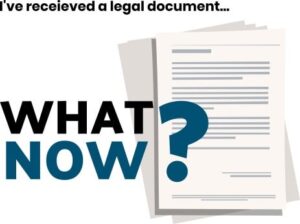Loan fraud
What is loan fraud?
Loan fraud is not new, but technology has made it easier to perpetrate such fraud. It is defined as a material misstatement, misrepresentation or omission that is relied on in a loan application. It can be perpetrated by the borrower or the lender.
Fraud can be committed in relation to a range of loans, such as mortgages, personal loans, and credit cards.
Due to the large amount of documentation involved in securing a mortgage, there are numerous ways fraud can be committed during the mortgage lending process.
These include:
- understating debts;
- overstating the value of assets;
- overstating income or savings;
- using false employment details; and
- claiming false residency status.
Mortgage and loan fraud can be committed by any party in the loan transaction chain, such as the loans officer, mortgage broker, real estate agent or property valuer.
The reasons for committing loan fraud include desperation, the perception of lenient penalties, and the demand for fast approval of loans.
- Consequences include:
- suspension or loss of financial licence;
- withdrawal of investor support for lenders;
- unfavourable credit checks for a borrower; and
- forced sale of a property.
Who is liable for loan fraud losses?
If a borrower commits fraud, they are liable for the losses incurred by the lender and broker.
If a broker commits fraud, they are liable for the losses incurred by the lender. This applies when a broker fails to follow a lender’s procedure which would have exposed the fraud. A broker may sue a lender for damages if the lender’s systems, training and rules are inadequate or not being followed.
Defences available for fraud changes include duress (being forced or coerced into committing fraud) and mistake of fact (making an honest and reasonable mistake).
Superannuation fraud
What is superannuation fraud?
Superannuation fraud refers to the improper flow and control of superannuation money. It includes:
- gaining access to superannuation when ineligible;
- failure to make compulsory payments;
- misappropriation of assets;
- improper or fake loans;
- improper use of fund assets; and
- collusion between trustees and fund managers to improperly divert assets, charge excessive fees or pay unauthorised expenses.
Superannuation scams
Superannuation account holders can fall victim to fraudsters who use a variety of tactics. These tactics include:
- offering free superannuation reviews and upfront cash incentives;
- high-pressure offers and time-sensitive offers;
- unusual investment opportunities that are often overseas and unregulated;
- unsolicited contact by phone, online or by post;
- offering early access to superannuation funds; and
- impersonating businesses or government agencies.
What are the penalties for superannuation fraud?
Under the Superannuation Industry (Supervision) Act 1993 (Cth), there are civil and criminal penalties for superannuation fraud. The penalties range from an infringement notice to imprisonment.
Proceedings must be commenced within six years of the fraud.
Defences available for fraud changes include duress (being forced or coerced into committing fraud) and mistake of fact (making an honest and reasonable mistake).
Ramifications for fraud and scams can be extremely serious, so legal advice from a fraud lawyer should be sought immediately. Call Gibbs Wright today about your matter for a free and confidential consultation to discuss your rights and options.





